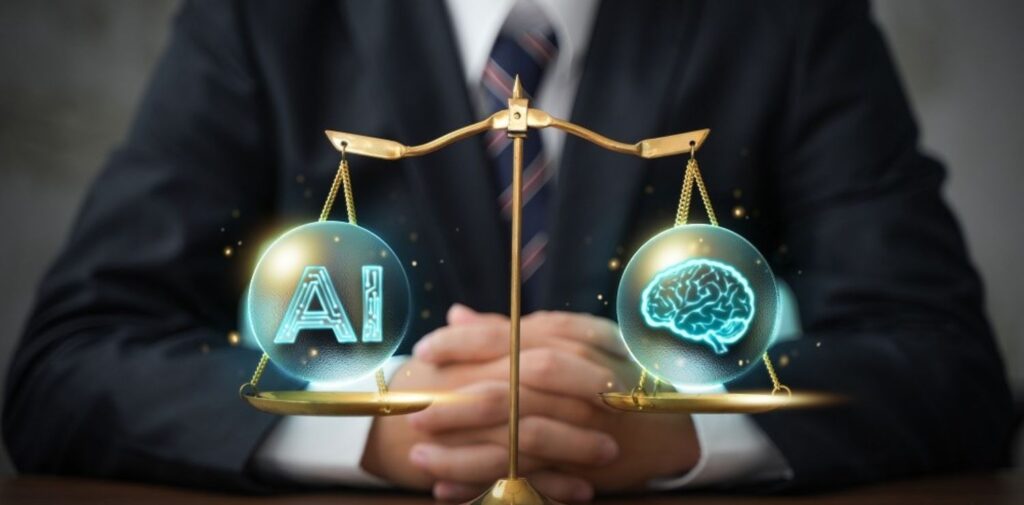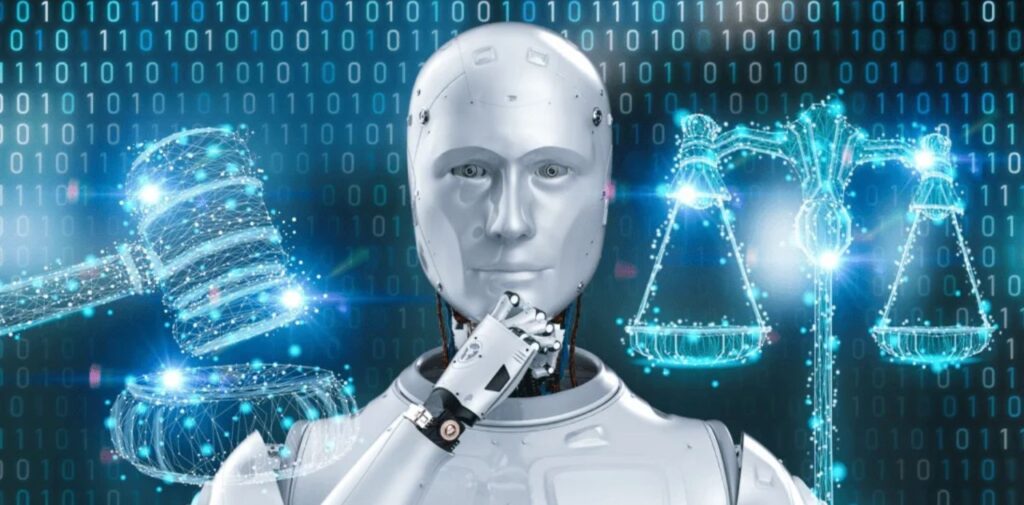In recent years, Artificial Intelligence (AI) has become a buzzword in almost every industry, including healthcare, finance, education, and now, law. With the rise of legal tech startups and automation tools, many people are asking one big question: Can AI replace lawyers? The legal field in India is deeply rooted in traditions, laws, and human judgment, but it’s also beginning to embrace digital transformation. This article explores the impact of AI on the legal profession in India, the opportunities it brings, the limitations, and whether lawyers should be worried or excited.

Understanding AI in the Legal World
Before we jump to conclusions, it’s important to understand what AI means in the legal context. AI in law does not mean robots wearing black coats and arguing in court. It refers to the use of software and algorithms that can perform tasks usually done by lawyers or paralegals. This includes reviewing contracts, finding relevant case laws, predicting case outcomes, and even drafting legal documents.
In India, legal research and document review are two areas where AI has made significant progress. Tools like CaseMine, LegitQuest, and NearLaw have started using AI to make legal research faster and more efficient. Instead of spending hours going through hundreds of cases manually, lawyers can now get accurate case references in minutes.
How AI is Helping Indian Lawyers and Law Firms
AI is not just a fancy tool, it’s becoming a necessity for lawyers and law firms that want to stay competitive. Here’s how:
Faster legal research: Indian courts produce thousands of judgments every month. Searching through them manually is time-consuming. AI tools can quickly filter through these cases, highlight relevant judgments, and even suggest precedents based on the facts.
Contract analysis: Reviewing contracts for errors or risks is a repetitive task. AI-powered software can scan legal documents, identify risky clauses, and even suggest changes. This saves time and reduces human error.
Legal chatbots: Some startups in India are creating legal chatbots that can answer common legal queries. For example, if someone wants to know how to register a trademark or file a consumer complaint, these bots can guide them step by step.
Cost reduction: Law firms can save a lot of money by automating basic tasks. This allows them to offer affordable services to clients, especially small businesses and individuals who can’t afford high legal fees.
Remote legal services: AI has made it easier for lawyers to offer services online. During the COVID-19 pandemic, many Indian courts started virtual hearings, and now online legal consultations are more common than ever.

Will AI Replace Lawyers in India?
This is the big question everyone wants an answer to. The simple answer is: No, AI will not replace lawyers completely, at least not in the near future. However, it will change the way they work.
AI is very good at handling repetitive, rule-based tasks, but law is more than just rules. It involves human emotions, ethics, negotiation, and critical thinking. For example, arguing a case in court, understanding the emotional state of a client, or making moral decisions in complex cases are things only a human can do.
Moreover, Indian law is not just based on rules and regulations—it also involves deep understanding of constitutional principles, social justice, and cultural context. These are areas where AI still has a long way to go.
Instead of replacing lawyers, AI is more likely to become a valuable assistant. Lawyers who learn how to use AI tools will have an edge over those who don’t. In fact, the future lawyer in India will be someone who is both legally sound and tech-savvy.
Challenges of Using AI in Indian Legal System
While AI has many benefits, there are some serious challenges when it comes to its use in India’s legal system.
Data availability and quality: AI systems learn from data. But in India, many court judgments are not digitized, or they are in different formats. Also, regional languages pose a problem, as most AI tools are built for English content.
Lack of regulation: There are no clear laws in India that define how AI should be used in legal services. This raises concerns about data privacy, misuse of technology, and the question of accountability if something goes wrong.
Trust factor: Many lawyers and judges still prefer traditional methods and may not fully trust AI-generated suggestions. It will take time for people to become comfortable using technology in such a sensitive field.
High initial cost: Setting up AI systems and training staff to use them can be expensive, especially for small law firms and solo practitioners.
The Future of Legal Tech in India
Despite the challenges, the future looks bright for legal tech in India. The government is also taking steps toward digitization of court records, and several legal startups are developing AI tools suited for the Indian context. In the next 5 to 10 years, we can expect more AI integration in legal processes, especially in tasks like:
- E-discovery and document review
- Online dispute resolution
- Legal analytics and case prediction
- Compliance tracking for companies
Law schools in India are also starting to offer courses on legal technology, preparing future lawyers for the new way of practicing law.

What Should Law Students and Young Lawyers Do?
If you are a law student or a young lawyer in India, this is the best time to upskill yourself. Learning about AI and legal tech can make you stand out in the job market. You don’t need to be a coder, but understanding how these tools work and how they can be used in practice is very important.
Start by exploring legal research tools like SCC Online or Manupatra, and then move to AI-based platforms. Learn about data privacy laws, intellectual property rights in the digital world, and basic concepts of coding and algorithms. Attend webinars, join legal tech communities, and stay updated with the latest trends.
In short, AI is not a threat to your career, but a tool to make you better at your job.
Conclusion
AI will not replace Indian lawyers, but it will definitely transform the way law is practiced. Those who adapt to this change will benefit the most. It’s not about man versus machine—it’s about man with machine. The legal tech revolution is already here, and India is slowly but surely catching up. The question is: Are you ready to be a part of it?
Let’s not fear technology, but use it wisely to build a more efficient, accessible, and fair legal system for everyone.




